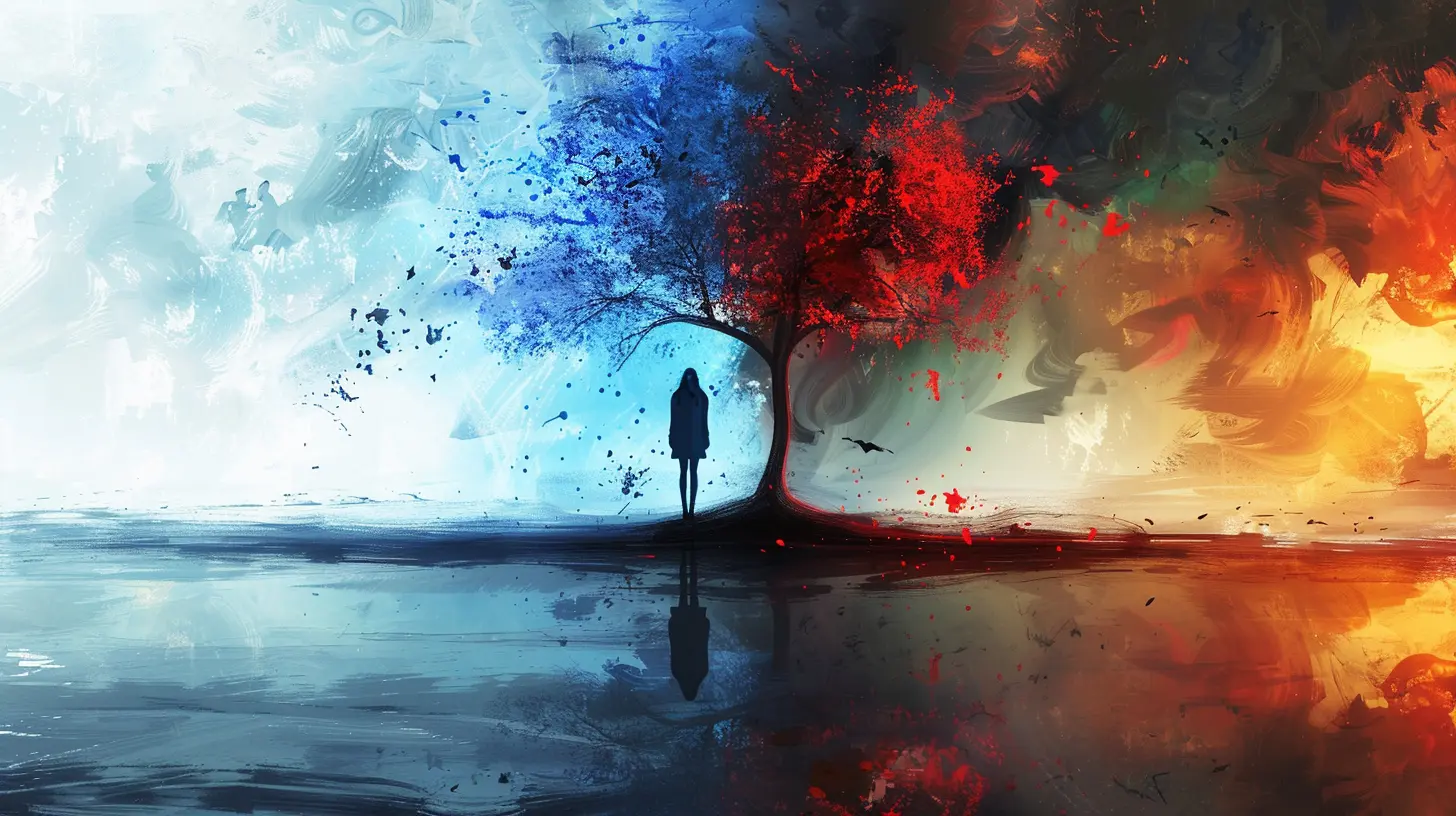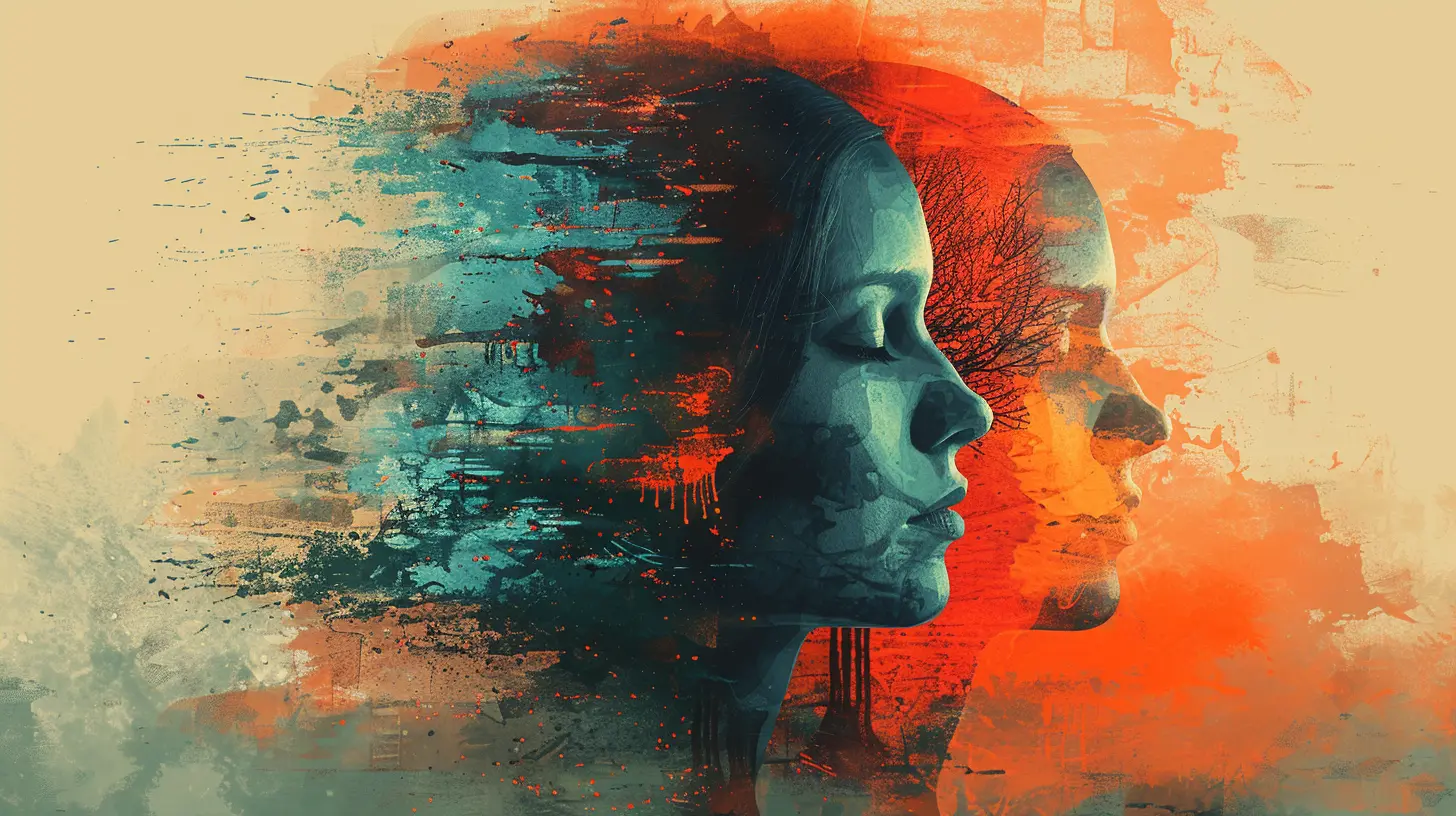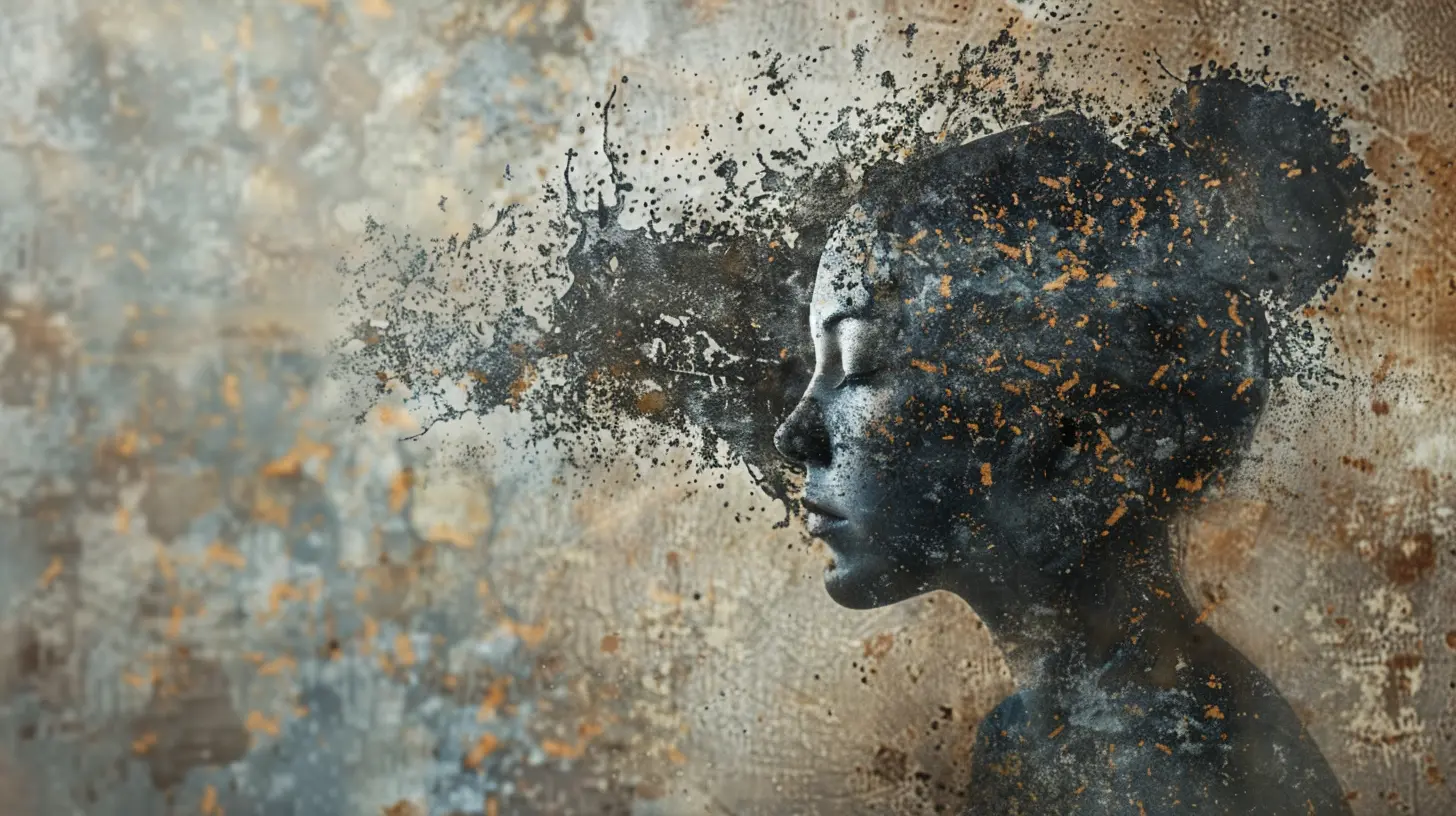Understanding the Hidden Signs of Depression
7 July 2025
Depression isn't always what it seems. We often picture it as someone curled up in bed, tears streaming down their face, unable to move through the day. And yes, sometimes depression looks like that. But other times? Depression hides behind smiles, busy schedules, sarcastic humor, or constant fatigue. It wears many masks, and these hidden faces can be the hardest to recognize.
Most people don’t even realize they're dealing with depression until they're drowning in it. So, how can we spot what’s lurking beneath the surface? That’s what we're diving into today—how to recognize the subtle and often overlooked signs of depression.

What Exactly Is Depression?
Before we dig into the hidden stuff, let's get one thing straight: depression isn’t just "feeling sad." It's a complex mental health condition that affects your thoughts, emotions, behavior, and physical health. It can hit anyone—no matter their age, gender, background, or lifestyle.Think of depression as a fog that seeps into every corner of your life. It clouds your judgment, dims your energy, and steals your motivation. But unlike physical injuries, depression doesn’t always come with visible signs. Sometimes, it shows up in ways that are easy to ignore—or even mistake for something else.
Why Recognition Matters
So why should we care about the subtle signs? Because catching depression early can make a massive difference. Left untreated, it can worsen over time, impacting relationships, work, and overall quality of life. Worse, it can lead to self-harm or suicidal thoughts.When we know what to look for—especially in ourselves or loved ones—we can reach out, start a conversation, and take steps toward healing.
The Hidden Signs of Depression You Might Be Missing
You might be surprised at what can be a sign of depression. Some symptoms are so sneaky, they fly completely under the radar. Let's break them down.1. Chronic Fatigue or Low Energy
Ever wake up exhausted even after a full night’s sleep? Or feel like you're dragging your body through molasses all day long? Sure, stress and busy schedules can wear us out, but persistent fatigue—especially when there's no clear cause—could be a sign of depression.Depression messes with your brain chemistry, reducing energy and motivation. People often describe it as feeling “mentally heavy,” like even small tasks take a monumental effort.
> 🧠 Mental Exhaustion = A Major Red Flag
It’s not laziness. It’s your brain and body crying out for help.
2. Overworking or Becoming a “Busy Bee”
Weirdly enough, depression can drive people to become more active—but not in a good way. Some people throw themselves into work, cleaning, projects, or social events as a way to distract from what they're feeling inside.This is known as "high-functioning depression." On the outside, everything looks fine—even successful. But inside, the person feels hollow, disconnected, or numb. If you find yourself constantly overbooked and emotionally distant, it might be time to check in with your mental health.
3. Irritability and Anger
This one often gets misunderstood. Depression doesn’t always come with sadness—it can show up as anger, snapping at people, or getting frustrated over small things.Think about it: when your emotional tank is empty, even the smallest stressor can feel like a catastrophe. Many men, in particular, tend to express depression as irritability rather than sadness—thanks in part to social conditioning that tells them emotions are weakness.
4. Losing Interest in Things You Used to Enjoy
Let’s say you used to love painting, hiking, or even binge-watching your favorite shows. But lately? Nothing excites you. You feel... meh. That emotional flatlining, called anhedonia, is a classic symptom of depression.It's more than just boredom. It’s like your brain has turned down the volume on joy. You want to care—but you just can’t.
5. Changes in Appetite or Weight
Depression affects the brain’s hypothalamus, which controls hunger and bodily functions. That’s why people with depression might experience sudden food cravings or lose all interest in eating.Some comfort-eat to soothe emotional pain. Others forget to eat altogether. If your eating habits have done a 180 and you don’t know why, it might be worth checking in with your emotional well-being.
6. Sleep Disturbances
Can’t fall asleep? Or maybe you’re sleeping 12 hours a day and still feel tired. Either extreme could point to depression.It’s a cruel cycle—lack of sleep worsens depression, and depression makes it harder to sleep. Your brain is either too wired or too worn down to maintain a healthy sleep rhythm.
> 😴 Sleep With Depression = A Broken Switch
You’re either stuck in “on” mode or can’t seem to power up at all.
7. Guilty Thoughts or Self-Criticism
If your inner voice constantly tells you that you’re failing, not good enough, or a burden to others, pay attention. Excessive guilt or negative self-talk is a big red flag.This self-blame isn’t grounded in reality—it’s your brain distorting the truth. But when you're in it, it feels so real. This kind of inner dialogue can seriously chip away at self-esteem and even lead to suicidal ideation.
8. Withdrawing From People
You used to love catching up with friends or joining family game nights, but now the thought of socializing makes you want to crawl under the covers.Depression makes people isolate—sometimes to avoid being a “downer,” or just because it takes too much energy to engage. But isolation only deepens the pit. If someone you care about is slowly becoming invisible, don’t take it personally—it might be depression talking.
9. Trouble Concentrating or Making Decisions
Feel like you can’t remember anything? Or your brain moves like molasses when it's time to focus? Depression can slow down cognitive processing, making it hard to think clearly, solve problems, or make even simple choices.It’s like your mental bandwidth shrinks—you’re constantly buffering.
Depression Can Look Different in Everyone
Here’s the catch: not everyone experiences all of these symptoms. Some might only have one or two. Others might experience the full spectrum. And depression can differ based on age, gender, culture, and life circumstances.In Children and Teens
Kids may act out, struggle in school, complain about physical aches, or become overly clingy or withdrawn. Teens might turn to risky behavior, self-harm, or develop eating disorders.In Adults
Mid-life depression can center around job burnout, relationship issues, or the stress of parenting. Many adults hide it well—they're often juggling so much that they themselves don’t realize they’re depressed.In Seniors
Elderly individuals may see depression manifest as memory loss, confusion, or physical complaints. It's often mistaken for dementia or just old age, but it's very real and very treatable.When to Reach Out for Help
Let’s be honest—it’s tough to admit you need help, especially when you’re used to being the strong one. But acknowledging the struggle is the first step toward healing.If you experience any of these symptoms persistently for more than two weeks—and they’re interfering with daily life—it’s time to reach out. That could mean talking to a therapist, calling a mental health hotline, or simply opening up to a trusted friend or family member.
You don’t have to hit rock bottom before getting help.
> 💬 Think therapy is only for breakdowns? Nope. It’s also for breakthroughs.
How to Support Someone With Hidden Depression
Spotting the signs in others is one thing—knowing how to respond is another. It can be tricky because many people with hidden depression don’t want to talk about it—or may not even realize they’re struggling.Here’s what you can do:
- Check in regularly – A simple “How are you really doing?” can open the door.
- Listen without judgment – Avoid trying to fix them. Just being there matters.
- Encourage professional help – Offer to help find a therapist or go with them if they’re nervous.
- Don’t give up – Keep showing up, even when they push you away.
Let’s Normalize Talking About It
Here’s the deal: depression doesn’t make you weak. It makes you human. The more we talk about the hidden signs, the easier it becomes for people to raise their hand and say, “Hey, I’m struggling.”Mental health deserves the same attention and care as physical health—and that starts with awareness. So the next time someone seems “off”—or you just don’t feel like yourself—pay attention. Those subtle signals might be pointing to something deeper.
You are not alone. And help is always within reach.
all images in this post were generated using AI tools
Category:
DepressionAuthor:

Jenna Richardson
Discussion
rate this article
2 comments
Khloe McIntosh
This article sheds light on the often-overlooked signs of depression, reminding us that understanding these hidden struggles is crucial for compassion and support. By recognizing these signs in ourselves and others, we can foster a more empathetic world and pave the way toward healing and connection.
December 8, 2025 at 5:24 AM

Jenna Richardson
Thank you for your thoughtful comment! I'm glad you found the article helpful in raising awareness about the hidden signs of depression and the importance of empathy in fostering support and connection.
Quentin Heath
Subtle cues reveal deeper emotional struggles; awareness is essential.
July 21, 2025 at 4:28 AM

Jenna Richardson
Thank you for your insight! You're absolutely right—recognizing subtle cues can significantly enhance our understanding of emotional struggles. Awareness is key to supporting those in need.


